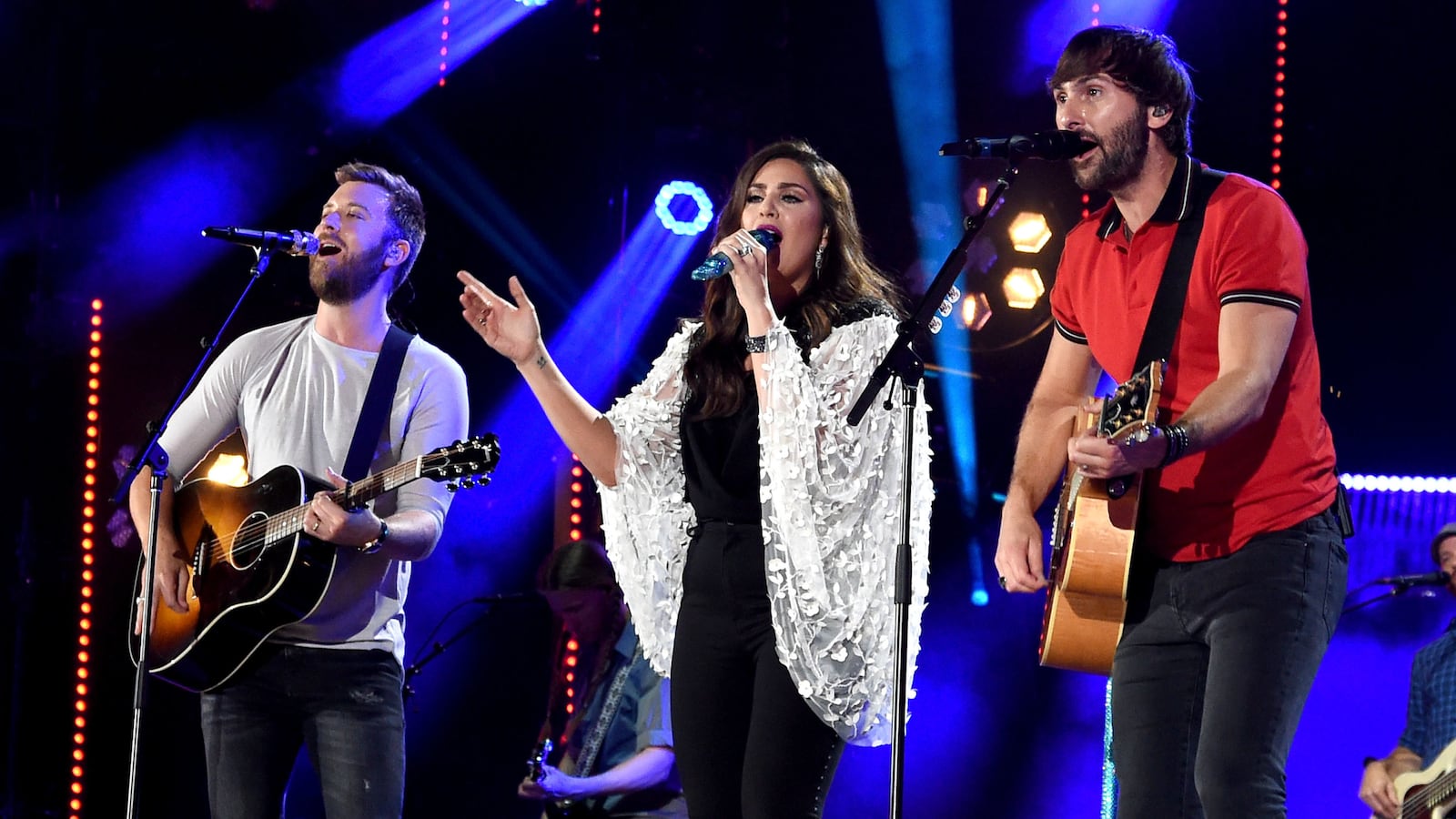Lady Antebellum has a new name: Lady A. The country band announced its name change on Thursday in a statement, in which they wrote, “After much personal reflection, band discussion, prayer and many honest conversations with some of our closest black friends and colleagues, we have decided to drop the word ‘antebellum’ from our name and move forward as Lady A, the nickname our fans gave us almost from the start.”
The move is a commendable one; the band’s name, referring to the period before the Civil War, connotes obvious ties to slavery. That association has shut down, among other things, Blake Lively’s short-lived lifestyle brand Preserve. But the band’s statement is also curious, and a little misleading. It seems to imply the three-piece only recently realized their name is offensive in light of the recent Black Lives Matter protests. In fact, discussion has surrounded the outfit’s name for years—and they’ve addressed it before.
“As a band, we have strived for our music to be a refuge… inclusive of all,” the band wrote in its statement. “We’ve watched and listened more than ever these last few weeks, and our hearts have been stirred with conviction, our eyes opened wide to the injustices, inequality and biases black women and men have always faced and continue to face everyday. Now, blindspots we didn’t even know existed have been revealed.”
“When we set out together almost 14 years ago, we named our band after the Southern ‘antebellum’ style home where we took our first photos,” the statement adds. “As musicians, it reminded us of all the music born in the South that influenced us… Southern rock, blues, R&B, gospel and of course country. But we are regretful and embarrassed to say that we did not take into account the associations that weigh down this word referring to the period of history before the Civil War, which includes slavery. We are deeply sorry for the hurt this has caused and for anyone who has felt unsafe, unseen or unvalued. Causing pain was never our hearts’ intention, but it doesn’t change the fact that indeed, it did just that. So today, we speak up and make a change. We hope you will dig in and join us.”
“We understand that many of you may ask the question ‘Why have you not made this change until now?’” the statement continues. “The answer is that we can make no excuse for our lateness to this realization. What we can do is acknowledge it, turn from it and take action.”
Lady Antebellum’s name has been a topic of discussion for almost as long as the band has existed. It’s been covered in publications including Ms. magazine and Vice, which included the name in an article about offensive band names. Singer Hillary Scott addressed the trio’s controversial name choice just a few years ago during an interview with the Chicago Tribune—and seemed to imply that she knew from the start that the name came with significant baggage.
“I have to give [singer Charles Kelley] credit for the band name,” Scott said. “He and Dave [Haywood] called me on speakerphone when we were trying to nail down a name, and I was like, ‘So, are y’all OK with being in a band named ‘Lady Antebellum’?’ And they said, ‘Yeah, it’s really cool.’ I remember thinking, if we get a record deal, that’ll be the first thing to go, but somehow it stuck.”
“Looking back, it was like, how did that become our name?” Scott continued, referring back to the point she made in the statement about antebellum architecture. In the end, she said, “We liked how it sounded. It sounded country, and it had this layer of nostalgia. But once (fans started) calling us ‘Lady A,’ I was like, ‘Let’s just keep it that way.’”
Regardless, it appears the band now known as Lady A is committed to making a positive change. The band pledged to donate to the Equal Justice Initiative through their community foundation Lady Aid.“We feel like we have been awakened,” their statement continues, “but this is just one step. There are countless more that need to be taken. We want to do better. We are committed to examining our individual and collective impact and making the necessary changes to practice antiracism. We will continue to educate ourselves, have hard conversations and search the parts of our hearts that need pruning—to grow into better humans, better neighbors.”
“Our prayer,” the statement concludes, “is that if we lead by example... with humility, love, empathy and action… we can be better allies to those suffering from spoken and unspoken injustices, while influencing our children and generations to come.”





